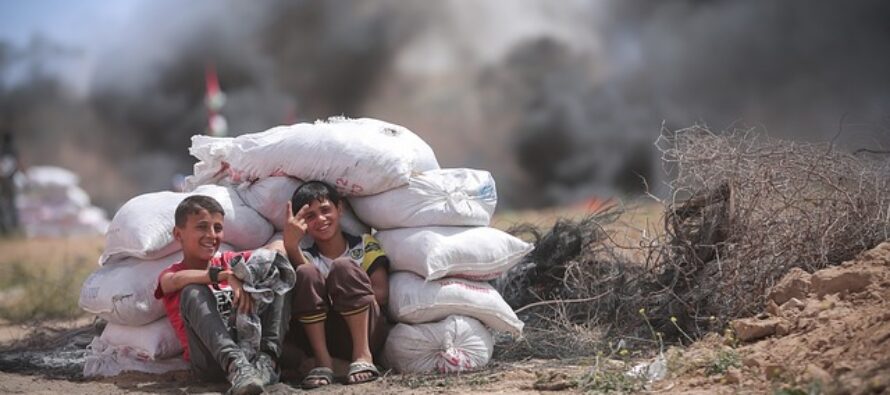The Sheikh Jarrah Intifada

![]()
In its identity, the land gathers its people at prayer time, a worship that mixes national and religious ritual. Sheikh Jarrah has revealed the issues at the heart of Palestine; it has seeped into Haifa, Lydda, Majd al-Krum, Rahat, Beersheba, and Jaffa as they’ve risen to the rescue of Gaza, whose blood is squeezed into the spirit of Jerusalem. Camps, villages, and cities across the West Bank scream as conflict breaks out in Huwara, Jalamah, and Bab al-Zawiya. Crowds advance to the borders in Lebanon, Syria, and Jordan. Iraq rises; Cairo returns to Egypt.
Yes, parties set off, unshackling themselves, when popular will digs its heels into the earth. Let brave youth be part of the dawn of the immediate future.
Effective revolutionary values shake off the call of a time that has garnered little sympathy, or which cannot justify a people’s existence on their own land.
A land torn by settlement and the wall, whose people have lost any shred of conscientiousness from an occupier that practices the most severe forms of discrimination, displacement and racial persecution.
On May 15, 2021, the components of Palestinian identity, in its national, political, and geographical forms, are wrapped up in popular uprisings. They choose their means in response to provocation in the field, defending their personhood and freedoms.
Continuing the Sheikh Jarrah uprising—or intifada—underlines a stage of revolutionary and democratic construction for the Palestinian people, a connection of old and new with steadfast historical narrative; it enumerates massacres in chapters that speak of the pain that buried the blood of victims in the memory of a people who will never die.
Related Articles
Israel pounds Gaza after Egypt border clash
![]()
Two Palestinians were killed in an Israeli strike on north Gaza on Monday, medics said, just hours after gunmen mounted
The Russians Did Better … So Why Did They Lose?
![]()
US Now in Afghanistan Longer Than Soviets Kabul. US forces have now stayed longer in Afghanistan than the Soviet army
La ocupación trajo una guerra que persiste tras su anunciado final
![]()
ANÁLISIS | X ANIVERSARIO DE LA INVASIÓN DE IRAK El autor indica que la guerra en Irak continúa, pese a


